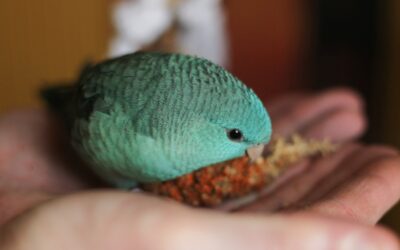We cat owners are always concerned with our furry friends’ wellbeing. One of the questions you may run into if you have a single cat, or if you’re unsure whether to adopt one or more felines, is: do cats need company? After all, some animals thrive in groups, while others are more solitary. What about cats?
Let’s talk multi-cat households and how to find out whether your cat is in need of a friend!
Do cats need company?
This is one of those really annoying cases where the answer is: it depends. Sorry!
Let us explain. There used to be a pretty strong emphasis on keeping cats alone. After all, their ancestor, the African wildcat (Felis sylvestris lybica) is mostly a solitary creature. And we all know that whether they normally get along or not, cats do tend to get into fights with their feline housemates from time to time. But does that mean you should keep yours on their own? Not necessarily. Some cats really thrive on social contact with their own kind.
Whether your cat needs company or not depends mostly on external factors. Do you work long shifts away from home? How big is the house? Is your cat used to other cats’ company? How old is your cat? In some cases, a shelter or breeder will explicitly state that a cat needs to be the only feline in the household; this is because some just get too stressed or aggressive when kept with their own species.
Veterinary scientists have actually studied multi-cat households in quite a bit of detail. The results vary by paper, but in most cases, there wasn’t much difference in stress levels between solo cats and those in multi-cat households.
As a 2013 study puts it:
“In conclusion, it seems reasonable to suggest that factors other than group size, such as the degree of environmental control or the environmental composition (e.g. provision of useable 3-dimensional space, number of people, and relationship with people) may be more important in controlling stress in cats in captivity and further investigation of these individual factors is warranted.”
As long as you introduce your felines to each other in the proper way, the amount of cats in a home doesn’t usually matter that much (unless your specimen is very intolerant or easily stressed). What does matter is stuff like space, resources such as litter boxes, and the influence of the home’s human inhabitants. If you do adopt multiple cats, for example, it’s considered important to provide one litter box per cat, plus one extra “reserve” litter box. The same goes for food bowls, beds, toys, and scratching areas. This really helps reduce conflict!
It’s also important to give each cat their fair share of attention. Stay on top of training, include plenty of playtime, and learn to recognize your cats’ moods and behaviors for the best chances of success.
Tip: If two cats are already bonded, which often happens with littermates, it’s not a good idea to separate them. Losing their “other half” can really stress them out.
Signs your cat needs a friend
If you’re reading this, chances are you already have a cat and you’re worried they’re feeling lonely. In most cases, this is not an issue likely to pop up: they generally do fine alone. However, it can happen if your furry friend is left alone for many hours daily or is one of those cats that just needs endless attention.
Signs your cat needs a friend can include:
- Extreme clinginess, won’t leave you alone
- Excessive grooming, lots of hairballs
- Lethargy, not interested in playing or interacting
- Eating a lot, or too little
- Sleeping a lot
- Excessive vocalization
- Changed toilet habits
- Destructive behavior (though this one can often be solved with more enrichment!)
If you’re thinking of adding another cat to your family, be sure to consider whether you can offer enough space, resources, and the energy and time needed to take care of another pet. We urge you to discuss the situation with a veterinarian specialized in cats, as they can give you personalized advice.
In multi-feline households, look out for good signs: your cats grooming each other, sleeping together, and “greeting” each other enthusiastically with tails upright, possibly accompanied by a short meow or nose touch. It’s also not a problem if they mostly avoid each other, as long as they don’t seem otherwise stressed (see below).
Tip: Before running out to the shelter, ask yourself if your cat is getting enough enrichment. Sometimes, dedicating more time to play and offering more interesting objects—plus fun activities like foraging—can be enough to improve your feline’s mood without adding another cat to the household.
Signs your cats aren’t getting along
If you’re reading this because you added another cat to your household and you feel things aren’t going well, this section is for you. The occasional play fight is normal, but your cats shouldn’t be in active combat all the time! Sometimes, things just don’t work out, which can lead to serious stress.
Funnily enough, a lot of the signs that multiple cats aren’t getting along are almost identical to signs that a single cat is lonely. After all, it all boils down to stress, and that often manifests itself in similar ways even though the situation may not be the same.
In addition to the normal signs of stress, look out for:
- Excessive fights, especially (but not only) if injuries occur
- Avoidance, refusing to interact
- Territorial behavior over food, litter boxes, etc.
- Lashing out at human family
- Spraying indoors
- Bladder inflammation (feline cystitis) due to reluctance to use the litter box
What causes these issues? There are many factors. For example, 2023 study suggests that cats are less likely to get along if:
- Multiple cats are spayed females
- The cats have outdoor access
- There was a large age gap between the cats
In most cases, your chances of success are the highest if you get two cats that are already bonded. Littermates generally get along better than unrelated cats, and young cats will tend to struggle less to adapt to new housemates than older ones.
And again, it’s all about resource management! For example, dotting things like litter boxes, food bowls, beds, and toys around the house gives your cats more opportunity to get away from each other, and it reduces competition. Before rehoming one of your furry friends, try to see if moving stuff around (and some gentle mediation) help improve the situation.

If fights are breaking out regularly, your cats may be stressed living together.
Conclusion: Do cats need company?
There’s no straightforward answer. Some cats really thrive in pairs or even larger groups, while others do much better alone. Whether your cat needs company depends on factors like how much time you spend at home, whether there’s enough space, and your cat’s personality. With the information above, you should hopefully be able to figure out if it’s a good idea to add another feline to your household or not.
Sources








